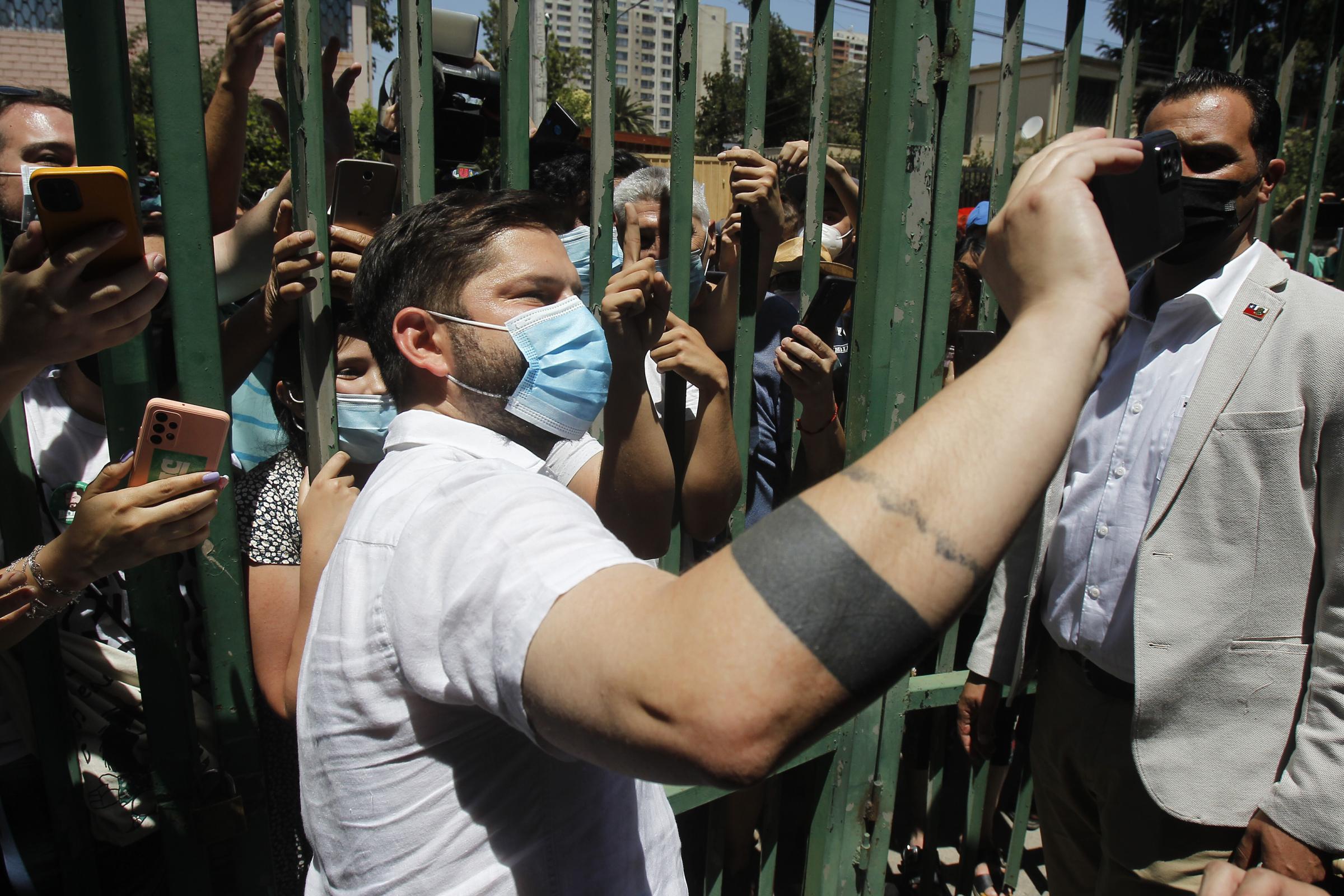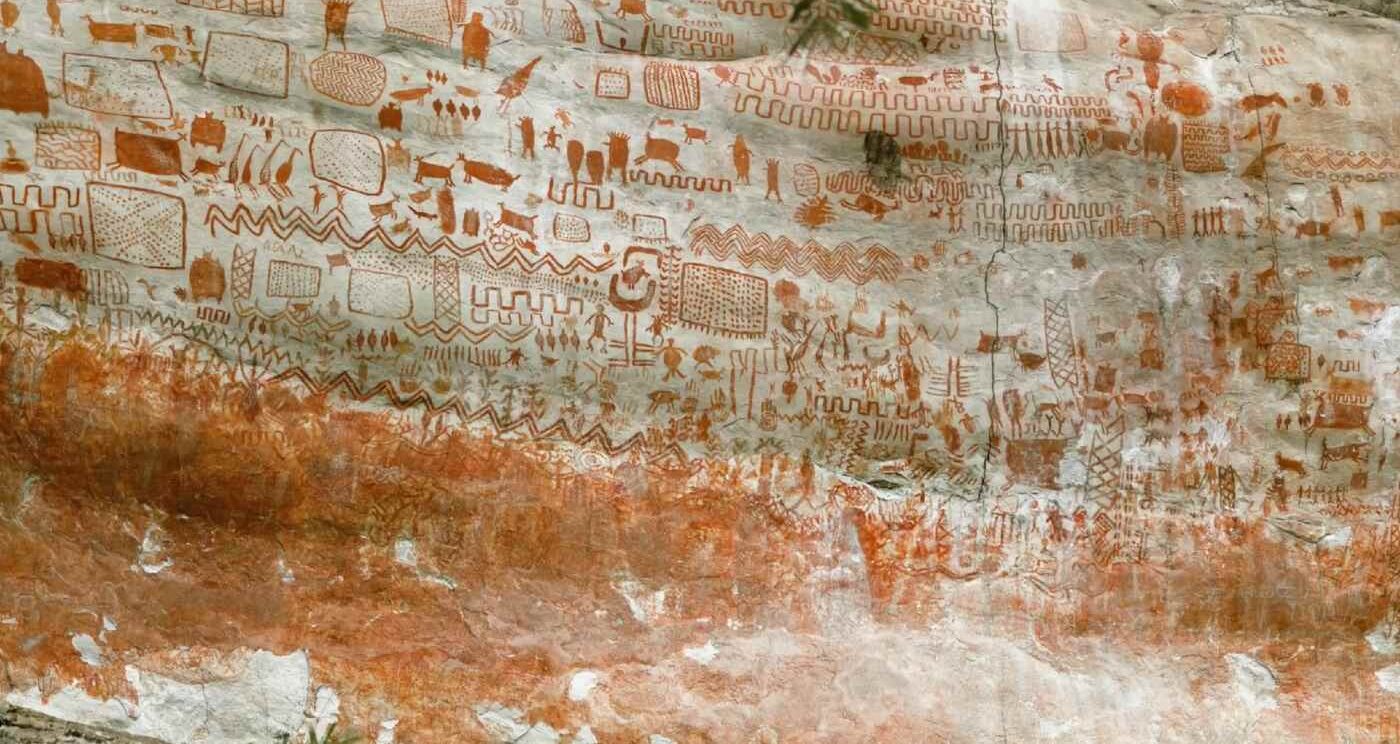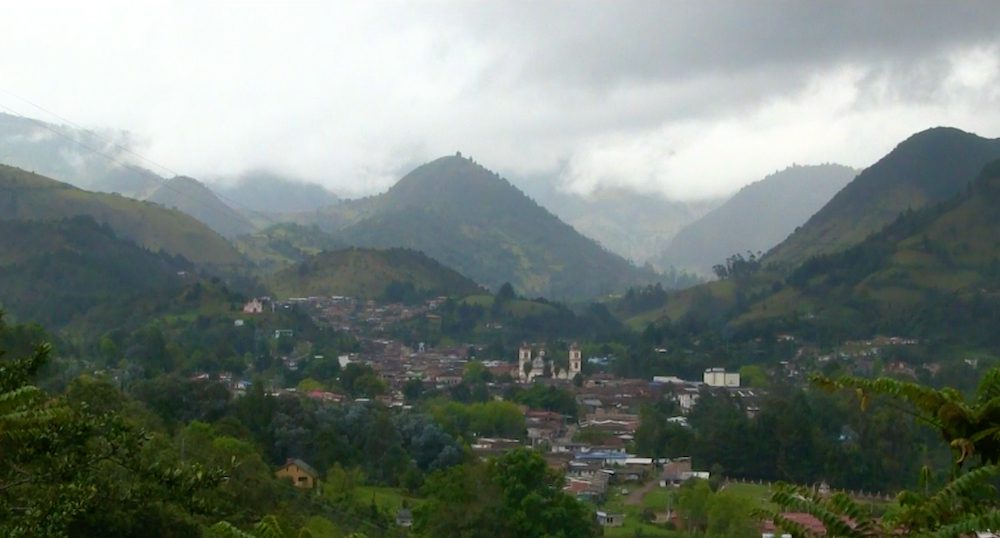Judi Lynn
Judi Lynn's JournalGabriel Boric's election success is a sign of hope for the world
28th December
By Alyn Smith @AlynSmith
Columnist

Gabriel Boric’s victory follows those of the Social Democrats in Norway and Germany
‘OTHER men will overcome this dark and bitter moment when treason seeks to prevail. Go forward knowing that, sooner rather than later, the great avenues will open again and free men will walk through them to construct a better society.”
In his final words before his death during a 1973 coup, Chilean president Salvador Allende saw a brighter future for his people. Beyond the guns, the bombs, the bullets, he saw the flower of human potential that was, temporarily, being crushed by General Augusto Pinochet’s thugs. Now, Chile stands at another historical moment in the history of Latin America, with lessons for us all.
Last week saw Gabriel Boric, the young bearded progressive, defeat his far-right opponent Jose Antonio Kast in Chile’s second presidential election round. The result was clear with Boric winning 56% of the votes.
His victory did not come out of nowhere. Chile is a rich country but also one of the most unequal of the mostly developed countries in the OECD. The top 10% hold around 80% of the total wealth in the country. In 2019, Chile had an income gap 65% wider than the OECD average. A 2018 government study showed that the income of the richest was nearly 14 times higher than that of the poorest.
More:
https://www.thenational.scot/politics/19812436.gabriel-borics-election-success-sign-hope-world/
Founding Godfathers
Mobster Sam Giancana once went as far as to tell his brother that the Mafia and the CIA were “two sides of the same coin."
By Olúfémi O. Táíwò TODAY 5:00 AM
They called him a lot of things: “Momo,” “Mooney,” “Sam the Cigar.” But in the 1960s, maybe they should have called Sam Giancana “the real president of the United States.”
Sam Giancana was born Gilormo Giancana in 1908 on the West Side of Chicago to Sicilian immigrants. He got his start as a low-level gangster and driver for Al Capone, but worked his way up to the role of hitman. By the 1950s, Giancana was the top man of the Chicago Mafia (the “Outfit”), but a groundbreaking journalistic investigation 40 years later showed that Giancana was at the top of much more than that.
By the 1960s, Giancana was among the political power players of the country itself—and, by extension, the world that the United States claimed hegemony over. The Godfather Part II offers a famous fictionalized version of the real relationship between the United States, US-based Mafias, and the Batista dictatorship over Cuba in an iconic scene: Older mobster Hyman Roth describes the pieces of his Cuban business empire he plans to give to protagonist Michael Corleone while they cut and share a cake decorated with the image of Cuba. But the Cuban Revolution had other plans, and the US went from having the entirety of Cuba as a functional neo-colony to settling for one measly torture center.
Welcome to the sixth entry of the series “How Much Could a Banana Republic Cost?,” where we’re still trying to figure out who and what rules the world. The first post introduced our candidates: Big Green (investors, corporations, or individual plutocrats), Big Guns (armies, militias, and Mafias), and Big Graphs (technocrats and knowledge-based organizations). First up was the Big Green theory, which came in two flavors: a “Monopoly” version where the rich buy up individual and separable parts of our political world, and the “Round Table” version where they work together in concert to rule everything.
More:
https://www.thenation.com/article/economy/organized-crime-politics/
Cuba Defeats Covid-19 with Learning, Science, and Unity
DECEMBER 16, 2021
BY W. T. WHITNEY
Education is central to Cuba’s brand of socialism. The revolutionary government’s dedication to scientific knowledge and healthcare for all shows up now as Cubans cope with the Covid-19 pandemic. The United States is not so lucky.
Cubans have wholeheartedly carried out masking, social-distancing, testing and quarantining. Cuba’ s bio-medical research and production facilities created five anti-Covid vaccines. As of December 3, 90.1 percent of Cubans had received their first dose; 82.3 percent of them were fully vaccinated. Only seven other countries have higher rates. (1) Trials showed that Cuba’s workhorse Abdala and Soberana 02 vaccines were protective for over 90 percent of vaccine recipients.
Cuba’s Covid vaccines don’t need extremely low-temperature refrigeration as is the case for major U.S. vaccines. In that regard they are particularly useful in poorly resourced countries. Cuba has sent, or is preparing to send, vaccines to Vietnam, Venezuela, Iran, and Nicaragua. Cuban scientists are elaborating a version of their Soberana Plus vaccine that will protect against the Omicron variant.
Cuba’s achievement in producing anti-Covid-19 vaccines is remarkable in the face of shortages of equipment, reagents, and supplies due to the U.S. economic blockade.
More:
https://www.counterpunch.org/2021/12/16/cuba-defeats-covid-19-with-learning-science-and-unity/
Culture in a bowl: Haiti's joumou soup awarded protected status by Unesco
The dish, originally cooked by slaves for their owners, has come to symbolise hope and dignity in the troubled Caribbean country
Saeed Kamali Dehghan
Fri 17 Dec 2021 01.00 EST
Haiti’s joumou soup, a symbol of hope and dignity for the world’s first black-led republic, has been awarded protected status by Unesco.
The soup, made from turban squash and originally cooked by enslaved African people for their owners in Haiti, was on Thursday added to Unesco’s prestigious list of intangible cultural heritage. It is Haiti’s first inclusion on the list, and the country’s Unesco ambassador, Dominique Dupuy, cried as the announcement was made. The decision is expected to be officially endorsed by Unesco’s general assembly next year.
Since Haiti’s independence in 1804, joumou soup has become the national symbol of liberation from slavery, and is traditionally eaten on 1 January, the Caribbean country’s independence day.
“It is a great joy and a point of pride to see this project come to fruition today, just two weeks before the Haitian independence day. It is an important gesture of recognition for the entire Haitian culture and identity, which will further strengthen its influence throughout the world,” said Audrey Azoulay, Unesco’s director general.
More:
https://www.theguardian.com/global-development/2021/dec/17/culture-in-a-bowl-haitis-joumou-soup-awarded-protected-status-by-unesco
~ ~ ~
https:/
/



~ ~ ~
Wikipedia:
Soup joumou (/dʒuːmuː/; French: soupe au giraumon) is a mildly spicy soup native to Haitian cuisine.
The soup is traditionally cooked with pumpkin winter squash. The pumpkin slices are simmered in a saucepan along with pieces of beef, potato, plantains and vegetables such as parsley, carrots, green cabbage, celery and onions. The pumpkin is then puréed, usually in a food processor, with water and the purée is returned to the saucepan. Salt and seasoning along with garlic and other herbs and spices are then added. Some Haitians often add thin pasta such as vermicelli and macaroni and a small amount of butter or oil. A dash of lime juice is added before serving. The soup is always served hot and is usually accompanied with a sliced bread which dipped in the soup.[1][2][3]
Social connotations & liberation
Soup joumou has multiple social and symbolic meanings for the Haitian people. During slavery, only the French colonial masters and plantation owners were allowed to enjoy this delicacy, a delicacy prepared by slaves.[4] After the revolution, the free Haitians were finally able to eat this meal. The soup came to represent freedom, emancipation and independence. It functions as a reminder of the revolution that liberated the Haitian population. On January 1, Haitians both at home and in the diaspora celebrate the first successful slave rebellion that transferred political power its slave majority, with this soup.[2] A local street-food vendor in Haiti was interviewed about the significance of her job and the purpose of her people, she replied “Nou se revolisyonè, nou pran swen youn lot” or "We are revolutionaries; we take care of each other." Specifically, soup joumou was a food source for the French colonial masters on the plantations of Haiti.[2] The meal was ideal for Haitian slaves who were restricted to rations and scraps of food left by their masters.
. . .
After all of the slave labor that propelled the colony into being the world's highest sugar and coffee producers by the end of the 18th century... it was still illegal for the slaves who prepared the food to taste the finished product of soup joumou. Hence, it is no coincidence that Haitians take tremendous pride in consuming the soup that they were once forbidden to eat on the day of its independence. Consequently, soup joumou is traditionally consumed on New Year's Day (January 1), in reverence for and tribute to Haitian independence which occurred in 1804.[2][3]
https://en.wikipedia.org/wiki/Soup_joumou
Colombia's congress approves media bans
by Adriaan Alsema December 8, 2021
Colombia’s House of Representatives on Monday approved legislation that allows government officials to request the shut-down of news media that report on them.
The controversial rider was part of an “anti-corruption” bill that was sponsored by coalition party Radical Change and has yet to be approved by the Senate.
The vote triggered a storm of protest of free speech advocates who claimed that the bill sought to censor journalists who report on government corruption.
In response to the blowback, Congress amended the article, which initially allowed government official to request an arraignment judge to jail critics charged with slander or defamation.
More:
https://colombiareports.com/colombias-congress-seeks-to-shut-down-news-media/
Published before Sunday's election: "Will Voters Choose to Make Chile Terrible Again?"
NOVEMBER 19, 2021
BY ARIEL DORFMAN
Ever since my native Chile regained its democracy in 1990 after 17 years of a brutal dictatorship, I have been haunted by the fear that those dark times could return. No matter how often that dread was met with proof of how the Chilean people were distancing themselves from the terror of the past — repudiating the executions, the torture and the massive exile of dissidents under strongman Gen. Augusto Pinochet — I could not shake the sense that one day my country, besieged by crises, might condone a regression to authoritarianism and repression.
My fear lifted substantially two years ago, when the largest social justice protests in Chile’s history led to 80% of the electorate voting to replace Pinochet’s fraudulent 1980 constitution, which had been constraining indispensable reforms. The way the constitutional convention, in session since July, has been reconceiving a deeply democratic government seemed a sign that the perverse institutions and advocates of dictatorship were being permanently consigned to ashes and irrelevance.
I should not have been so optimistic.
Chile goes to the polls Sunday to elect a new president, with a potential runoff four weeks later between the top two candidates. The campaign has seen the alarming possibility that José Antonio Kast, an ultra-right-wing populist who considers Pinochet his hero, could become the country’s next president.
When Kast, the son of a Nazi officer who had served Hitler, launched his candidacy, I believed, along with most observers on the right and the left, that his campaign was doomed. His opposition to divorce, abortion and gay rights, as well as his window-dressing responses to global warming, contrasted with what most of the country appeared to be thinking. Kast had also crusaded to keep the old, autocratic constitution and supported pardoning some of Pinochet’s most egregious torturers, murderers and other agents, now serving long prison sentences for their human rights violations.
How is it, then, that this crypto-fascist could end up as Chile’s next president?
More:
https://www.counterpunch.org/2021/11/19/will-voters-choose-to-make-chile-terrible-again/
Incredible Cave Paintings 8 Miles-Long Revealed Deep in Amazon Forest: The Sistine Chapel of Ancient
Incredible Cave Paintings 8 Miles-Long Revealed Deep in Amazon Forest: The Sistine Chapel of Ancients
By Andy Corbley -Nov 15, 2021

GIPRI Colombia/YouTube
Tens of thousands of pristine cave paintings were found daubed across an eight-mile stretch of rock in a once-in-a-century discovery in Colombia’s Amazon rainforest.
Hailed as the “Sistine Chapel of the Ancients,” it’s the kind of discovery that changes the world of archaeology.
Believed to be 12,500 years old, the art is extremely detailed, and includes handprints and depictions of Ice Age megafauna like the mastodon, a relative of the mammoth, Ice Age horses, and giant ground sloths.
The discovery, made in Chiribiquete National Park in the south of Colombia, was actually made in 2019 but was kept quiet to be revealed in a major documentary called Jungle Mystery: Lost Kingdoms of the Amazon.
More:
https://www.goodnewsnetwork.org/colombian-cave-painting-discovery-hailed-as-sistine/
Also posted in Anthropology:
https://www.democraticunderground.com/12297670
The body as territory: The Kamnt Biy: Land use planning in defense of the sacred
By Tracy L. Barnett, Hernán Vilchez, originally published by Esperanza Project
November 11, 2021
By Tracy L. Barnett and Hernán Vilchez
with production by Andrés Juajibioy in Sibundoy and Laura Gómez in Bogotá
Academic support from Álvaro Sepulveda from the Colombian Society of Ethnobiology
This story begins the transmedia series “Cosmology & Pandemic — What We Can Learn from Indigenous Responses to the Current Health Crisis,” produced with the support of the Pulitzer Center on Crisis Reporting, The One Foundation and SGE. Episode I: The Body as Territory begins the series with three stories from three different indigenous communities in Colombia. For more about this series, see cosmopandemic.esperanzaproject.com.
From the moment the Kamëntšá Biyá people of the Sibundoy Valley learned about the Covid-19 pandemic, they knew what their response would be: to close the entire territory to outside visitors. In so doing, physically, symbolically and spiritually, they would close the territory of the human body to the viral invader.
That’s because for the Kamëntšá, and many other indigenous communities, the separation between the human body and the territory that it inhabits is a contradiction. The interconnection of land, water, air, and living beings is intricate and profound, and no healing can occur without first acknowledging that relationship.
“The territory is what allows life. So, if the territory is poorly conserved, in the future it will be difficult to preserve and protect life,” says Taita Ángel Pasuy Miticanoy, an architect, territorial planner and leader of the Kamëntšá community. “If the territory is healthy, we will be able to grow nutritious plants that help us strengthen our organism as a body, as people and as members of a community and a territory.”

The Kamëntšá-Biyá and their neighbors, the Ingas, inhabit a territory the Putumayo region that includes the Sibundoy Valley, a biocultural corridor that has long served as a crossroads connecting the Colombian Amazon with the high Andes. (Photo: The Esperanza Project – Cosmology & Pandemic)
For Pasuy, it is a reciprocal and synergistic relationship, and it works both ways: in healing the human body, the territory is also healed — and knowing, caring for and organizing the territory also provides well-being to individuals and human communities.
More:
https://www.resilience.org/stories/2021-11-11/the-body-as-territory-the-kamentsa-biya-land-use-planning-in-defense-of-the-sacred/
Reuters unmasks Trump supporters who terrified U.S. election officials
Law enforcement has taken little action as backers of Donald Trump aim stark threats at election officials. Reuters tracked down nine of the harassers. Most were unrepentant.
By LINDA SO and JASON SZEP Filed Nov. 9, 2021, 11 a.m. GMT
This story contains text, images and audio clips with offensive language.
In Arizona, a stay-at-home dad and part-time Lyft driver told the state’s chief election officer she would hang for treason. In Utah, a youth treatment center staffer warned Colorado’s election chief that he knew where she lived and watched her as she slept.
In Vermont, a man who says he works in construction told workers at the state election office and at Dominion Voting Systems that they were about to die.
“This might be a good time to put a f‑‑‑‑‑‑ pistol in your f‑‑‑‑‑‑ mouth and pull the trigger,” the man shouted at Vermont officials in a thick New England accent last December. “Your days are f‑‑‑‑‑‑ numbered.”
The three had much in common. All described themselves as patriots fighting a conspiracy that robbed Donald Trump of the 2020 election. They are regular consumers of far-right websites that embrace Trump’s stolen-election falsehoods. And none have been charged with a crime by the law enforcement agencies alerted to their threats.
More:
https://www.reuters.com/investigates/special-report/usa-election-threats/
700,000 Paraguayans At Risk Of Being Evicted By The Abdo Regime
Published 3 November 2021
Since the beginning of the year, 11 Indigenous communities have been forcibly evicted from lands claimed by private companies. On Tuesday, the Paraguayan Farmers Movement (PFM) denounced that 700,000 citizens are at risk of being evicted due to a President Mario Abdo's law supporting mass evictions of Indigenous families.
"There are 860 Indigenous and farmer settlements that are going to be evicted," PFM leader Belarmino Balbuena said, stressing that Abdo seeks to criminalize popular land occupations. Previously, the Police evicted 250 families from the Edilson Mercado community and 300 families from Yasy Cañy, where violence erupted between the citizens and law enforcement. As part of the law enforcement actions, every house was destroyed and the fields were burned down.
. . .
In 2006, the Truth and Justice Commission denounced that the Alfredo Stroessner's dictatorship (1954-1989) implemented an "agrarian reform" whereby over 75 percent of the lands of the Indigenous peoples and farmers were confiscated and handed over to its right-wing allies.
Since then, the affected social groups have tried to recover their lands through property occupation strategies, which are considered illegal under current laws. Besides being repressed by the police, popular organizations are attacked by private security agents that behave like paramilitary groups.
More:
https://www.telesurenglish.net/news/700000-Paraguayans-At-Risk-Of-Being-Evicted-By-The-Abdo-Regime-20211103-0006.html
Profile Information
Member since: 2002Number of posts: 160,630